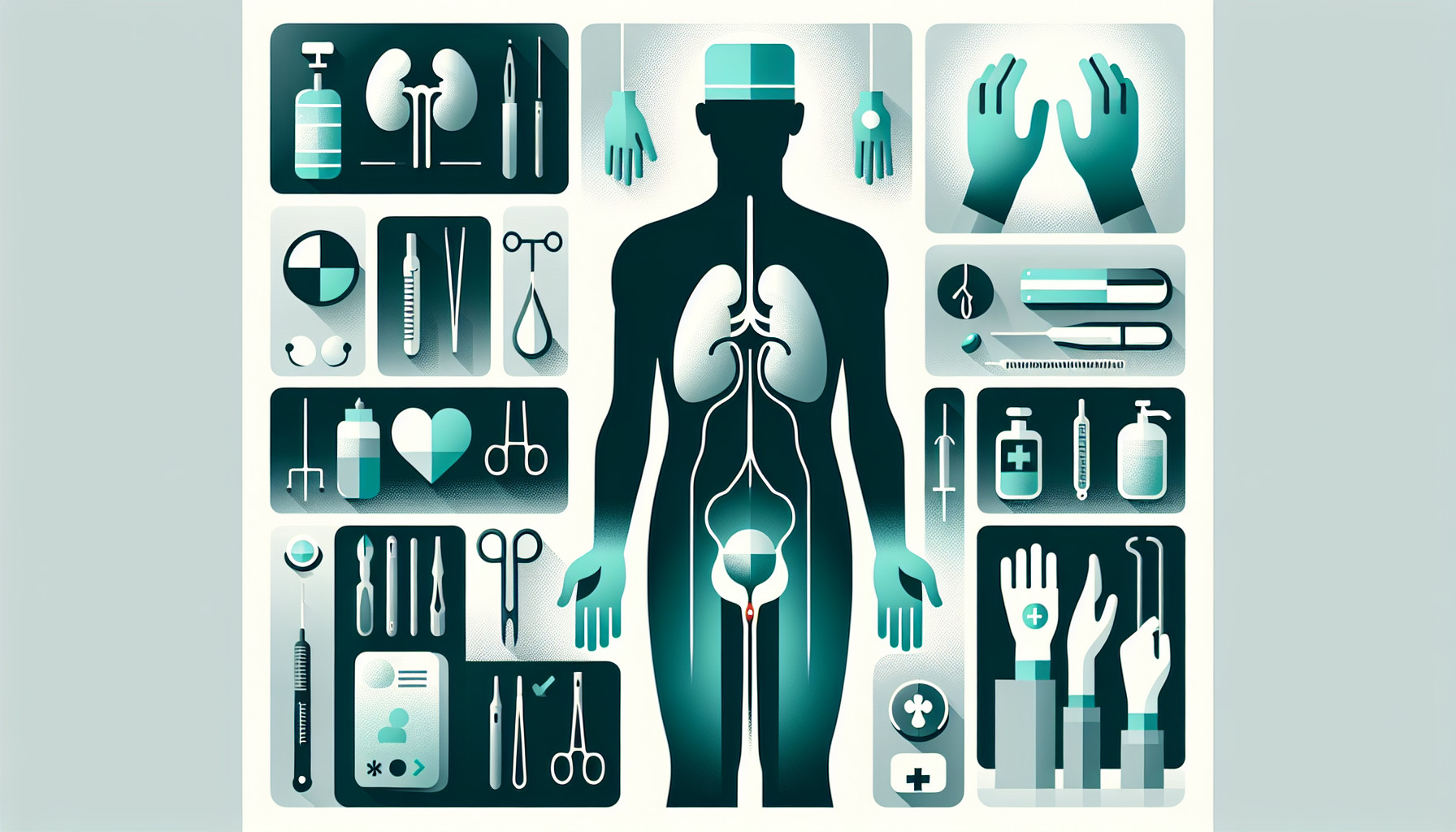Our Summary
This research paper discusses the increasing importance and use of partial nephrectomies, a surgery where part of a kidney is removed. This procedure is usually performed on healthy kidneys for elective or semi-urgent reasons. However, the use of partial nephrectomies is expanding to include patients with a single functioning kidney, those with poor kidney function, individuals with unusual kidney anatomy, and people with genetic conditions that make them prone to multiple kidney cancers, like Von Hippel-Lindau syndrome. The paper provides advice for surgeons on how to approach these more complicated cases. The authors believe that being able to perform partial nephrectomies in a variety of situations will enable surgeons to offer this treatment to a broader range of patients.
FAQs
- What is a partial nephrectomy and when is it typically performed?
- Has the use of partial nephrectomies expanded to include patients with different kidney conditions?
- What advice does the research paper offer to surgeons for approaching more complicated cases of partial nephrectomies?
Doctor’s Tip
A doctor might tell a patient undergoing nephrectomy to make sure to follow all post-operative care instructions carefully, including taking prescribed medications, avoiding heavy lifting or strenuous activity, and attending follow-up appointments. It is also important to stay well-hydrated, eat a healthy diet, and avoid smoking to promote healing and reduce the risk of complications. Additionally, patients should communicate any concerns or symptoms to their healthcare provider promptly.
Suitable For
Patients who are typically recommended for nephrectomy include those with:
Kidney cancer: Nephrectomy is often recommended for patients with kidney cancer, especially if the tumor is large or has spread beyond the kidney.
Kidney stones: Nephrectomy may be necessary for patients with large or recurrent kidney stones that cannot be treated with other methods.
Kidney damage: Nephrectomy may be recommended for patients with severe kidney damage or kidney failure that cannot be managed with other treatments.
Kidney infections: In some cases, nephrectomy may be necessary to remove a severely infected or damaged kidney.
Polycystic kidney disease: Nephrectomy may be recommended for patients with polycystic kidney disease who have large cysts that are causing pain or other complications.
Kidney trauma: Nephrectomy may be necessary for patients who have sustained severe trauma to the kidney that cannot be repaired through other methods.
Genetic conditions: Patients with genetic conditions that increase their risk of developing kidney cancer, such as Von Hippel-Lindau syndrome, may be recommended for nephrectomy as a preventive measure.
Overall, the decision to recommend nephrectomy for a patient will depend on their specific condition, the extent of their kidney disease or damage, and their overall health and treatment goals. It is important for patients to discuss their options with their healthcare provider to determine the best course of treatment for their individual situation.
Timeline
Before the nephrectomy:
- Patient is referred to a urologist or surgeon for evaluation
- Patient undergoes various tests and imaging studies to determine the need for surgery and assess the kidney function
- Patient may receive pre-operative counseling and education about the procedure
- Surgery date is scheduled and patient undergoes pre-operative preparations
After the nephrectomy:
- Patient is monitored closely in the recovery room for any immediate complications
- Patient may experience pain and discomfort post-surgery, which is managed with pain medications
- Patient is gradually encouraged to resume normal activities and follow up with the surgeon for post-operative care
- Patient may need to make lifestyle changes to accommodate the loss of kidney function
- Long-term follow up is required to monitor kidney function and overall health after the surgery.
What to Ask Your Doctor
What are the potential risks and complications associated with a nephrectomy?
How will a nephrectomy impact my kidney function and overall health?
Are there any alternative treatment options to a nephrectomy that I should consider?
How long is the recovery process after a nephrectomy and what can I expect in terms of pain and discomfort?
Will I need to make any lifestyle changes or follow a special diet after the surgery?
How often will I need follow-up appointments or monitoring after a nephrectomy?
Are there any long-term effects or complications that I should be aware of after having a nephrectomy?
Will I be able to live a normal, active life after having a nephrectomy?
How many nephrectomy procedures have you performed and what is your success rate?
Can you provide me with any resources or support groups for patients who have undergone a nephrectomy?
Reference
Authors: Raison N, Doeuk N, Malthouse T, Kasivisvanathan V, Lam W, Challacombe B. Journal: Int J Surg. 2016 Dec;36(Pt C):568-573. doi: 10.1016/j.ijsu.2016.05.070. Epub 2016 Jun 2. PMID: 27262880
